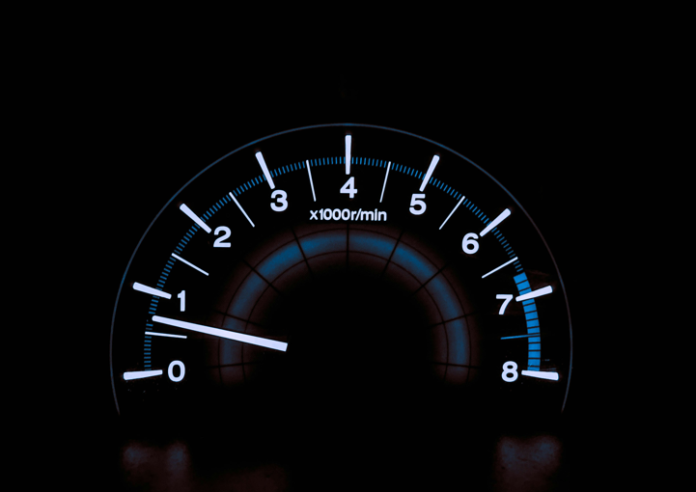Welcome to our blogpost “What Happens When Your Car Is Totaled But Still Drivable“. Imagine driving your car, feeling the wind in your hair, when suddenly an accident turns everything upside down. You step out to assess the damage and wonder: Is my car totaled? But what if it’s still drivable? It can be a confusing situation filled with questions about safety, insurance claims, and your next steps. Understanding what happens when your car is totaled but still drivable is crucial for making informed decisions moving forward. Let’s dive into this often misunderstood topic to clear up any confusion and guide you through the process ahead.
What Happens When Your Car Is Totaled But Still Drivable
A totaled car is one that has sustained damage deemed too severe to repair economically. Essentially, the costs of fixing the vehicle exceed its market value. Insurance companies typically assess this through a process known as “total loss evaluation.”
When a car is declared totaled, it doesn’t necessarily mean it’s un-drivable. Many totaled cars can still run or function well enough for short trips. However, they may have significant structural issues or hidden damages that could pose safety risks.
Different states have varying thresholds for what constitutes a total loss, often based on a percentage of the vehicle’s value versus repair costs. This means your seemingly drivable car might still fit into this category depending on how the insurance company evaluates it. Understanding these nuances helps you navigate potential next steps after an accident.
Factors That Determine if a Car is Totaled
When assessing whether a car is totaled, several key factors come into play. One of the primary considerations is the cost of repairs compared to the vehicle’s market value. If repair costs exceed a certain percentage—often around 70%—insurers may deem it totaled.
The extent of damage also matters. A minor dent might not total a car, but significant structural issues can easily push it over the edge.
Age and condition prior to an accident weigh heavily too. A newer model in excellent shape has more value than an older vehicle that’s already seen better days.
Insurance policies differ as well. Each insurer has its own criteria for determining if a car is beyond economical repair, which adds another layer to this complex decision-making process.
Common Misconceptions About Totaled Cars
Many people think a totaled car is beyond repair. This isn’t always true. A vehicle can be declared a total loss by an insurance company even if it’s still drivable. The decision often hinges on the cost of repairs compared to the car’s value.
Another misconception is that all totaled cars are unsafe to drive. While significant damage may raise safety concerns, some vehicles remain in good working condition despite their status.
There’s also confusion about how long a totaled car stays on your record. Many assume it will affect future insurance premiums indefinitely, but that’s not necessarily the case.
Some believe they won’t receive any compensation for a totaled but drivable car. Insurance companies typically offer payouts based on market value, regardless of whether you choose to keep driving it afterward.
What to Do If Your Car is Totaled but Still Drivable
If your car is totaled but still drivable, you have options. First, assess the damage thoroughly. Understand what repairs are needed and whether they’re worth the investment.
Next, consider your safety. If driving it poses a risk due to structural issues or compromised systems, think twice before hitting the road again.
Reach out to your insurance company promptly. Inform them of your situation so they can provide guidance on next steps and potential claims.
You may want to keep using the vehicle for now if it’s reliable enough for daily tasks. Just remember that its value has decreased significantly due to being marked as ‘totaled.’
Alternatively, explore selling it as-is or even parting it out if certain components are valuable. Research local salvage yards or online marketplaces where buyers look for such vehicles.
Keep all documentation handy; this will help streamline any transactions you decide on moving forward.
How to Handle Insurance Companies in This Situation
Dealing with insurance companies can be daunting, especially when your car is totaled but still drivable. First, document everything. Take photos of damage and keep records of all communication.
When you contact your insurer, be clear and concise about the situation. Explain that while the car is drivable, it has been deemed a total loss according to their assessment criteria.
Listen carefully to their explanation regarding coverage options and payouts. Don’t hesitate to ask questions if something isn’t clear—you have every right to understand what’s happening.
Be prepared for negotiations; insurers often start with lower offers. Gather evidence of your vehicle’s value through comparable listings or appraisals if necessary.
Remember, stay calm during discussions. This approach will help you advocate effectively for yourself in this complex process without added stress.
Options for Selling or Keeping a Totaled but Drivable Car
When faced with a totaled but drivable car, you have several options. If the vehicle still runs well and suits your needs, keeping it might be wise. You can continue driving while making necessary repairs at your convenience.
If selling seems like a better path, there are various avenues to explore. Private sales often yield higher returns than trade-ins. Be honest about the car’s status when listing it; transparency builds trust.
Consider junkyards or salvage companies if you’re ready to part ways quickly. They may offer cash for cars, even those deemed totaled by insurance standards.
Another option is donating the vehicle. Many charities accept cars in any condition, providing you with a tax deduction while helping others in need.
Weighing these choices will help determine what’s best for your situation and financial goals.
Conclusion
Navigating the aftermath of a totaled but drivable car can be confusing. Understanding your options is key.
Many drivers find themselves unsure about whether to keep their vehicle or sell it for parts. Each choice comes with its own set of pros and cons.
Insurance companies can add to the complexity, often requiring careful communication. Knowing your rights helps you make informed decisions.
Remember that a well-documented condition report enhances negotiations, especially when dealing with insurers or potential buyers.
Your approach will ultimately depend on personal circumstances and financial considerations. It’s essential to weigh each option carefully before moving forward in this unique situation.
Frequently Asked Questions (FAQs)
Frequently Asked Questions (FAQs)
What does it mean when a car is totaled?
When a car is deemed “totaled,” it means the cost to repair it exceeds its actual cash value. This determination often comes after an accident, where significant damage has occurred.
Can I keep my totaled but drivable car?
Yes, you can choose to keep your totaled car, especially if it’s still in drivable condition. However, this might affect your insurance payout and could require you to sign certain waivers.
Will my insurance cover repairs on a totaled vehicle?
Insurance typically will not cover repairs for a vehicle classified as totaled. Once declared, the focus shifts to settlement options rather than fixing the damaged vehicle.
How do I negotiate with my insurance company regarding a totaled car?
Gather evidence of your vehicle’s pre-accident value through service records or comparable sales. Presenting solid data can strengthen your case during negotiations with the insurer.
Should I sell my drivable but totaled car?
Selling is an option if you’re uncomfortable keeping it or need funds quickly. Many buyers are interested in vehicles that still run well and may seek them for parts or repairs.
Is there any impact on future insurance rates if I keep my totaled car?
Keeping a titled salvage vehicle may influence future premiums since insurers factor in risk assessments related to previous claims and salvage titles when calculating rates.
If you have more questions about this topic or face similar circumstances, don’t hesitate to reach out for advice tailored specifically to your situation. Understanding what happens when your car is totaled but still drivable empowers you as both an owner and consumer.

